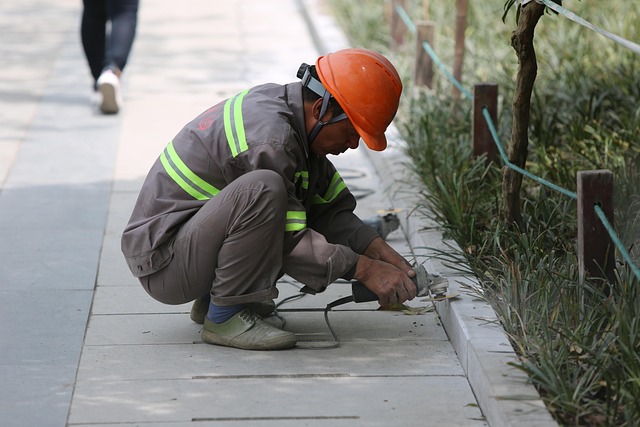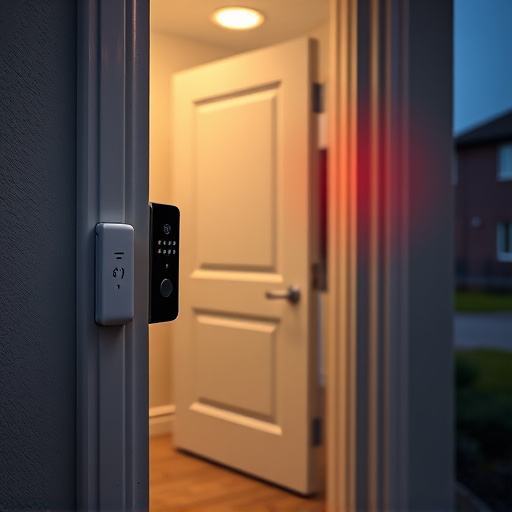Buying a house with mold requires careful consideration. Understand state laws mandating mold disclosures to protect your legal rights. Conduct thorough inspections, check water damage history, and look for signs of mold during visitations. Document issues through professional inspections and testing. Negotiate sale price or terminate contract if severe mold problems exist. Sellers must disclose known mold issues; failure to do so incurs liability. Pursue legal action for damages if health issues arise. Check for water damage, moisture problems, stains, peeling paint, and musty odors during inspection. Assess mold growth and its cause, as it may indicate underlying issues. Effectively clean visible mold and remediate the property using specialized equipment for optimal safety.
When considering buying a house, especially one that’s older or has experienced water damage, understanding the legal implications of mold is crucial. This guide navigates through the intricate details surrounding mold in real estate transactions, elucidating the legal responsibilities of sellers and buyers, and equipping homeowners-to-be with rights and remedies should they encounter this issue. We’ll delve into what to look for during inspections and how to mitigate risks associated with mold, providing valuable insights for those buying a house with mold concerns.
- Understanding Mold in Real Estate Transactions
- Legal Responsibilities of Sellers and Buyers
- Rights and Remedies for Homebuyers
- Inspecting Properties: What to Look For
- Mitigating Risk: Cleaning and Remediation
Understanding Mold in Real Estate Transactions

Buying a house is an exciting yet meticulous process, and one potential issue that buyers should be aware of is mold. In real estate transactions, understanding the presence, extent, and impact of mold is crucial for home buyers to protect their legal rights. Mold, often hidden behind walls, in attics, or within crawl spaces, can significantly affect indoor air quality and pose health risks.
When considering a property with signs of mold, buyers should demand thorough inspections and disclosures from sellers. Many states have laws mandating mold disclosures during real estate sales, ensuring transparency and enabling buyers to make informed decisions. Knowing the history of water damage or moisture issues at the property can help identify potential mold problems. Prompt action is essential; proper remediation methods can mitigate health risks and prevent further damage, but early awareness is key in navigating legal rights when buying a house with mold.
Legal Responsibilities of Sellers and Buyers

When buying a house with mold, understanding the legal responsibilities of both sellers and buyers is crucial. In many jurisdictions, sellers are legally obligated to disclose known mold issues in the property. This includes visible mold or any historical knowledge of water damage that could lead to mold growth. Failure to do so may result in legal repercussions for the seller.
On the other hand, buyers also have responsibilities. They are generally expected to conduct thorough inspections and due diligence before purchasing a home. This means looking for signs of mold during their visitations. While sellers must disclose known issues, buyers should exercise reasonable care by examining the property thoroughly to avoid potential legal disputes in the future.
Rights and Remedies for Homebuyers

When buying a house with mold, homebuyers have specific rights and remedies they can exercise. The first step is to thoroughly document the presence of mold through professional inspections and testing. This serves as evidence for any legal actions that may follow. Once confirmed, buyers can negotiate the sale price or even terminate the contract if the mold issue is severe or extensive.
Under many jurisdictions, sellers are legally obligated to disclose known mold problems. Failure to do so could result in liability. Homebuyers can also pursue legal action if they develop health issues related to mold exposure during or after moving into the property. This may include seeking damages for medical expenses and property devaluation due to mold.
Inspecting Properties: What to Look For

When considering buying a house, especially one that’s older or has been newly constructed, it’s crucial to be vigilant about potential hidden issues like mold. During your property inspection, look for signs of water damage or moisture problems, as these are primary catalysts for mold growth. Check for visible stains on walls, ceilings, or floors, and pay close attention to basements, attics, and bathrooms – areas most prone to humidity buildup. Inspect for peeling paint, which could indicate underlying water damage. Also, look out for musty odors, as they often signal the presence of mold, even if it’s not immediately visible.
Don’t overlook signs of water intrusion from leaks or poor drainage around the property. Ensure that windows and doors close tightly to prevent excessive moisture entry. If you’re unsure about any findings, consult a professional inspector who can use specialized tools to detect hidden mold growth. Remember, addressing mold issues promptly is essential for both your health and home value – so be thorough during your inspection when buying a house with potential mold concerns.
Mitigating Risk: Cleaning and Remediation

When considering buying a house with mold, it’s crucial to understand that proactive measures can mitigate potential risks. Homebuyers should first assess the extent of mold growth and its cause, as it could indicate underlying issues like water damage or poor ventilation. Addressing these issues early is key to preventing future mold problems.
Cleaning and remediation are essential steps in the process. Effective cleaning involves removing visible mold and contaminated materials while focusing on structural elements, floors, walls, and personal belongings. Remediation goes a step further by containing and removing mold spores, ensuring air quality, and restoring the property to a safe condition. Professional remediation services utilizing specialized equipment and products can be highly effective in managing mold-related challenges associated with buying a house with mold.














